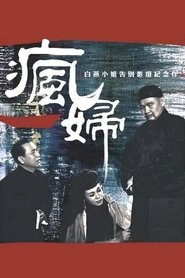detail profile to sam ku

To Sam-Ku
To Sam Ku
atau dikenal sebagai
Info Pribadi
Peran Yang Di Mainkan To Sam-Ku
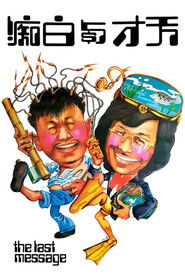 Li Sam Hui works at a...
Li Sam Hui works at a...The Last Message 1975
Li (Sam Hui) works at a sanitarium as a male nurse, and Ah Tim (Michael Hui) is a handy man. One day, a bearded old man is sent into the sanitarium with a large bag. Ah Tim manages to steal the bag, and finds antique fragments inside. When the old man dies, the pair learn from his daughter that there is a sunken vessel that is loaded with much more than they already have, so they decide to go after the sunken treasure.
 Michael Hui stars as Wen a...
Michael Hui stars as Wen a...Games Gamblers Play 1974
Michael Hui stars as Wen, a convict who's always out to make a quick dollar through gambling. Being behind bars doesn't stop him from making something off of his gambling skills. Samuel Hui co-stars as Chieh,a novice gambler who gets into trouble one day when he tries to steal casino chips from a crooked card dealer Dean Shek). Whilst in jail, Chieh meets Wen and the latter agrees to become his mentor. Can Wen and Chieh make a fortune from their combined skills or will the duo wind up back in prison?
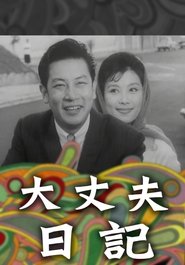 The Diary of a Husband serves...
The Diary of a Husband serves...The Diary of a Husband 1964
The Diary of a Husband serves as an illustration for the arrival of the white-collar economy, in which the extended family is replaced by the smaller nuclear family. It is a story about four pals who work at the same office, which, like other white-collar workplaces, has become the men's primary site of life, where livings are made and friendships fostered. Meanwhile, their wives have fostered something of their own—a brigade to catch cheating husbands. Much comedy is then generated by the cat-and-mouse game between the men and the women...The battle line drawn here between the sexes remains for years, to the extent that this very same story has been retold many times in Hong Kong films, including Men Suddenly in Black, the 2003 Pang Ho-cheung film with a similar Chinese title.
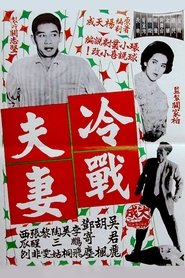 Ye Hui and Jiang Man were...
Ye Hui and Jiang Man were...A Couple in Cold War 1962
Ye Hui and Jiang Man were originally a loving couple. One time Hui received a 1000 dollar bonus, and his colleague Zhu Ge-Kong paid a plan to hide the bonus in the shoes and prepared to spend it on his own. After Man found out, he took the money away, and the two quarreled about it. , Hui asked for a divorce in anger, but he was not allowed to move away, so he only hung a tent in the bedroom as the "Chu River and Han Jie". After that, Huichang fought with his wife, even pretending to have brain cancer, and tricked Man into taking care of him. , Unexpectedly, it was seen through by Man again. Manager Hong of Hui Company and Manager Mei of Man Company reunited, and the two companies merged together, and Man promoted the director, making it difficult for Hui and Kong. After the manager of Man Demei persuaded him, he witnessed the affection of others’ husbands and wives. Deeply ashamed, reconciliation with Hui is as good as ever.
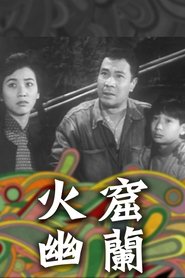 Cheung framed Chan For Chan orders...
Cheung framed Chan For Chan orders...Father is Back 1961
Cheung framed Chan For. Chan orders his wife not to tell this to their children, Ah Lan and Hung. His wife passes away. On her deathbed, she asked a neighbour, To Chung-man, to take care of her children. Claiming to be a good friend of their father, Chan For moves in to the bed next to Ah Lan to take care of his children. Hung likes this uncle because he always treats him generously. But Ah Lan finds "Uncle For" weird and enthusiastic. Ah Lan is forced to pay her mother's debt. Hung is suffering from acute appendicitis. To solve Ah Lan's financial problem, Chung-man returns to his rich family and accept an arranged marriage. Ah Lan decides to sell herself to the construction site foreman for one night. Chan For wants to stop his daughter from making this deal, so he agrees to work for Cheung again. The next day he carries out a robbery and is caught. Ah Lan and Chung-man visit him in jail, and hold their wedding ceremony in front of him. He looks forward to the days when he returns.
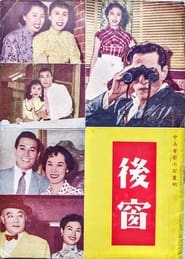 Reporter Yu Mongyuen is recovering from...
Reporter Yu Mongyuen is recovering from...Backyard Adventures 1955
Reporter Yu Mong-yuen is recovering from a leg injury in his fiancee Man-wah's apartment. Bored, he looks out the rear window and observes the life of the neighbouring building. Among the tenants are a sugar-daddy and his mistress, a middle-aged man wants to marry a young girl, but she is in love with his son. Finally, she hatches a plot and makes the man agree to her marrying his son ; a sly fortune-teller ; a lively gym, a rich widow quarrels with the trainer of a gymnasium because his dog has bitten her cat ; and an opera school, a woman signs, leaning on the balcony, and a man tries to strangle her. In fact they are rehearsing an opera…… One evening, Wah is on the night shift, and Yuen watches the opera troupe rehearse to the end. Under the influence of drugs, Yu mistakenly believes that a divorced man has murdered a taxi dancer. He alerts the police, but the whole thing is nothing more than a misunderstanding.
 An opera troupe has to dissolve...
An opera troupe has to dissolve...Parents' Hearts 1955
An opera troupe has to dissolve in view of the poor economy. Comedian star Sang Kwai-lei loses his job and he has no alternative but to play the lion character in the opera troupe of his former junior apprentice Chan Hau and pawn his stage costume. He aims at earning enough money to support the final year's secondary school studies of his elder son Chi-kuen. Kuen however refuses to continue his studies, seeing that his father has to put aside his dignity to earn money and his mother is worried. Lei is enraged and uses the money to support his younger son Chi-wai's studies. Again, Lei loses his job and he resorts to giving street performances, his wife takes up sowing work in her spare time and she dies after a long illness. Kuen works to support himself through school, but Wai is less fortunate, he is forced to enrol in an opera troupe as an apprentice. Years later, the dying father joyfully embraces Chi-kuen's return from his studies.
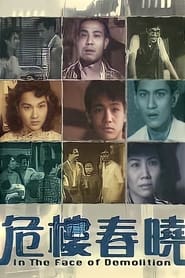 This early leftist social drama from...
This early leftist social drama from...In the Face of Demolition 1953
This early leftist social drama from Hong Kong offers a panoramic portrait of a crumbling apartment complex and its down-and-out denizens, including a taxi driver, an unemployed teacher, a professional reduced to selling his blood and, of course, a venal landlord. In addition to establishing an omnipresent theme in Hong Kong cinema – the plight of the urban poor – the film is also a prime example of the popular melodramas of the time, which featured displaced Mainland film stars.
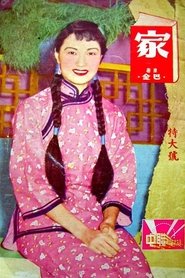 Family 1953 which launched the Union Film...
Family 1953 which launched the Union Film...Family 1953
"Family" (1953), which launched the Union Film legacy, "Spring" (1953) and "Autumn" (1954) are adaptations of Ba Jin's highly regarded novel "Torrent Trilogy". In "Family", director Ng Wui skilfully condenses the voluminous first part of the novel into an emotionally powerful and intellectually focused story of youngsters struggling to survive oppression and repression in a feudalistic family. This well-received film quickly established the company's reputation.
 The rapier wit is not only...
The rapier wit is not only...The Judge Goes to Pieces 1948
The rapier wit is not only for playful bantering between a couple but also for fighting justice. Famed attorney Sung Sai-kit (Ma Si-tsang) is best known for his sharp pen and silver tongue. His wife Madam Tong (Hung Sin Nui), sympathetic with a wronged widow, tries every trick up her sleeve to get her husband to help. Ma is funny and lovable who morphs from the henpecked husband to the brilliant and shrewd attorney at court, he displays perseverance behind his devil-may-care and nonchalant attitude, even Stephen Chow reincarnated his persona in the 1992 version.
 The place to be is flat...
The place to be is flat...